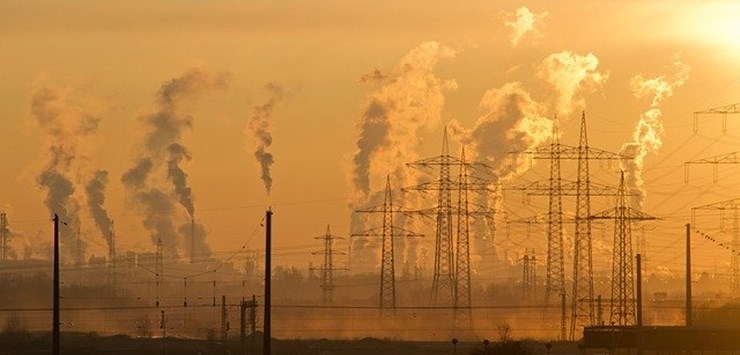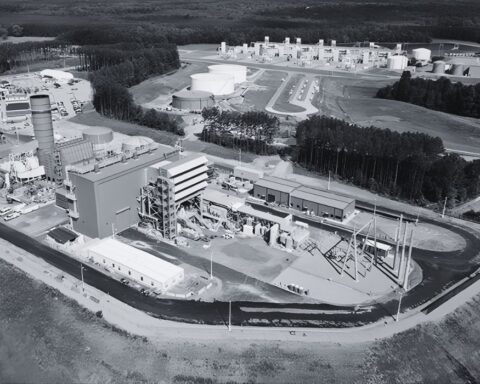It was a big announcement: shovels hitting the ground on Alberta’s biggest-ever electricity generator, the Cascade combined-cycle natural gas electricity-generation plant in late August. Nine hundred megawatts. $1.5 billion. And partly financed by the Ontario pension plan OPTrust, which just two years ago called for urgent government action on the climate crisis. Now, 90,000 Ontario pensioners, which includes the Ontario Teachers’ Pension Plan Board and multiple healthcare organizations, are investing in what is sure to be another fossil-fuel stranded asset in a few short decades. How did this happen? Are Ontarians even aware of this? Are they aware of the climate and financial risks of this investment?
In 2015, the Alberta government announced a phase-out of coal, eliminating coal-powered electricity generation by 2029. This means a lot of energy generation coming off in the next decade, which needs to be rapidly replaced. Over the last few years, surprisingly, utilities have outpaced the regulations in announcing the early retirements of old coal plants and the conversion of many newer plants to natural gas. Recognizing the risk of utilities engaging in a “dash to gas,” Rachel Notley’s NDP government instituted a 30% renewable energy requirement by 2030.
Why worry about a shift to natural gas? The concerns are twofold. First, even though its combustion produces about 50% fewer greenhouse gases (GHGs) than coal, it still produces GHGs. The push for net-zero emissions is happening at all levels of the economy. The Government of Canada has announced that Canada’s entire economy will be net-zero by 2050. In the U.S., Joe Biden’s platform has called for a net-zero electricity sector by 2035 – a mere 15 years away. The projected lifespan of a gas plant is at least 35 years, putting the forecasted closure of the Cascade project in 2058 – incompatible with a climate-transitioning world.
But CO2 is not the only GHG that results from building a gas plant. Natural gas has one main ingredient: methane, which also happens to be a potent GHG. And methane leaks: from the wellhead, from pipelines, from storage facilities. Everywhere. So if the leakage rate is more than 3% of the total methane produced, a gas plant is just as bad for the climate as a coal plant. Alberta has a major methane leakage problem, and recent studies suggest it is grossly underestimated.
Second, as major GHG emitters, gas plants are subject to a carbon price. At the moment, this expense is zero, since the price is offset by the exact amount of GHGs produced by an efficient gas plant (a full carbon-price exemption for natural gas plants, in effect). Federally, over the next 10 years, this offset drops to zero, so the Cascade plant will likely be exposed to the full impact of a very high carbon price. This makes such an investment risky, at best.
Investors, and in particular pension funds, around the world are increasingly wary of this type of investment. This isn’t just a bad bet for the future; it’s been a horrific bet in the past. A recent study compared returns on fossil fuels versus renewables over the last five years. And surprise! Renewable energy paid back handsomely compared to fossil fuels, and was less volatile. As investors wake to the reality of the carbon transition, this difference will be only more apparent. Mark Carney, former head of the Bank of Canada and the Bank of England, has stated that pension funds that ignore these investment realities risk ending up with portfolios full of worthless assets. And he’s pretty smart.
So not investing in fossil fuels is not only the moral thing to do, it is also the financially wise thing to do.
The people at OPTrust have begun to recognize this. They’ve created multiple reports, with pretty graphs and rosy statements about supporting the Paris Agreement. But this statement rings out: “Emission reduction targets are not today’s objective.” Like many other organizations, they are unwilling to walk the talk.
Ontarian pensioners deserve better, and they should demand it. They deserve investments they can be proud of, that support their growing grandchildren, and that support a survivable planet.
Joe Vipond is an emergency physician in Calgary and the president of the Canadian Association of Physicians for the Environment.
Adam Scott is director of Shift Action for Pension Wealth and Planet Health – an initiative working to protect pensions and the climate by bringing together beneficiaries and their pension funds to engage on the climate crisis.







